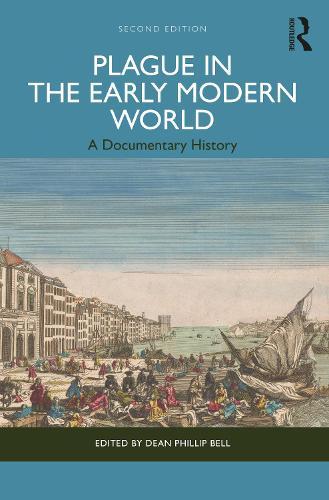Overview
Plague in the Early Modern World, now in a second edition, presents a broad range of primary source materials from Europe, the Middle East, North Africa, China, India, and North America that explore the nature and impact of plague and disease in the early modern world. During the early modern period, frequent and recurring outbreaks of plague and other epidemics around the world helped to define local identities, and they simultaneously forged and subverted social structures, recalibrated demographic patterns, dictated political agendas, and drew upon and tested religious and scientific worldviews. By gathering texts from diverse and often obscure publications and from areas of the globe not commonly studied, Plague in the Early Modern World provides new information and a unique platform for exploring early modern world history from local and global perspectives and examining how early modern people understood and responded to plague at times of distress and normalcy. This second edition has been updated throughout to include the latest scientific studies and historical research, new extracts, including sections from Mercuriale and Manzoni’s Promessi Sposi, and a fully updated bibliography. Including source materials such as memoirs and autobiographies, letters, histories, and literature, as well as demographic statistics, legislation, medical treatises and popular remedies, religious writings, material culture, and the visual arts, the volume will be of great use to students and general readers interested in early modern history and the history of disease.
Full Product Details
Author: Dean Phillip Bell (Spertus Institute, USA)
Publisher: Taylor & Francis Ltd
Imprint: Routledge
Edition: 2nd edition
ISBN: 9781032955971
ISBN 10: 103295597
Pages: 310
Publication Date: 12 August 2025
Audience:
College/higher education
,
Postgraduate, Research & Scholarly
Format: Paperback
Publisher's Status: Forthcoming
Availability: Not yet available

This item is yet to be released. You can pre-order this item and we will dispatch it to you upon its release.
Author Information
Dean Phillip Bell is President/CEO and Professor of Jewish History at the Spertus Institute for Jewish Learning and Leadership in Chicago. He is the author of several books, including Sacred Communities: Jewish and Christian Identities in Fifteenth-Century Germany, Jews in the Early Modern World, Jewish Identity in Early Modern Germany: Memory, Power and Identity, and (with Michael S. Hogue) Interreligious Resilience: Interreligious Leadership for a Pluralistic World. He is the editor of The Routledge Companion to Jewish History and Historiography, and co-editor (with Keren Eva Fraiman) of The Routledge Handbook of Judaism in the Twenty-First Century.




